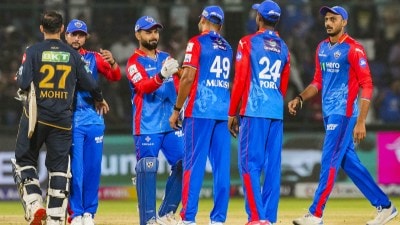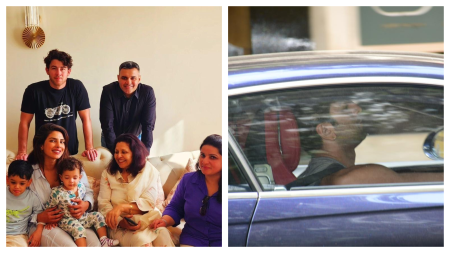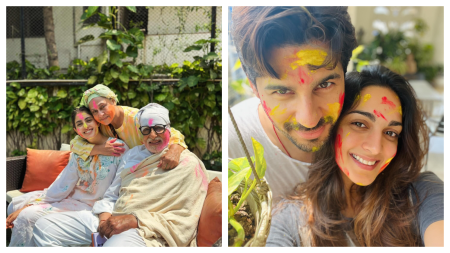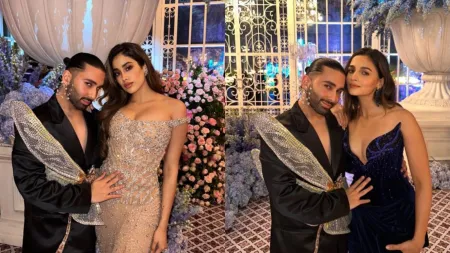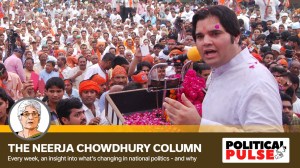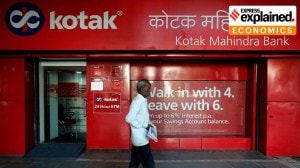- India
- International
P.O.W. director Nikkhil Advani: I will take a position but I don’t want to become a jingoist
Nikkhil Advani's Indian television P.O.W.: Bandi Yuddh Ke is clearly a gamble on the small screen with a drama set 17 years after the Kargil War.
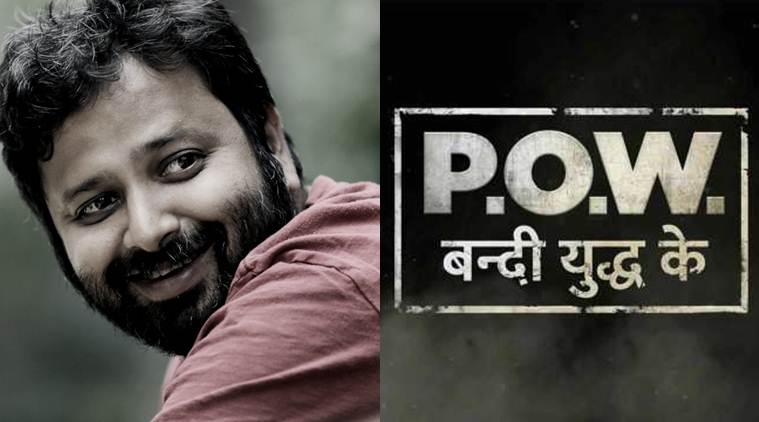 I’d like to redefine patriotism because it has become a very privileged thing today. If you don’t eat something, you’re patriotic. If you carry the flag, you’re patriotic,” says Nikkhil Advani, on the sets of his television debut, P.O.W.: Bandi Yuddh Ke.
I’d like to redefine patriotism because it has become a very privileged thing today. If you don’t eat something, you’re patriotic. If you carry the flag, you’re patriotic,” says Nikkhil Advani, on the sets of his television debut, P.O.W.: Bandi Yuddh Ke.
Filmmaker Nikkhil Advani is taking a gamble on the small screen with a drama set 17 years after the Kargil War– P.O.W.: Bandi Yuddh Ke. In these frenzied times, will it pay off and put him back on track?
I’d like to redefine patriotism because it has become a very privileged thing today. If you don’t eat something, you’re patriotic. If you carry the flag, you’re patriotic,” says Nikkhil Advani, on the sets of his television debut, P.O.W.: Bandi Yuddh Ke, in Kamal Amrohi Studios, Mumbai. “In some villages in Punjab and Rajasthan, the eldest son has to join the army. It’s hereditary and it’s what is expected of them. Where does that kind of nationalism come from? I don’t know, I don’t have it.”
Mumbai’s famed October Oppression is upon the city and it’s easier to talk about patriotism and the show during breaks in the 45-year-old filmmaker’s air-conditioned office. An official adaptation of the hit Israeli show, Hatufim (2009), P.O.W. is about two soldiers of the Indian air force and the army, Squadron Leader Imaan Khan (played by Satyadeep Misra) and Naib Subedar Sartaj Singh (Purab Kohli) respectively, who return home 17 years after being captured by Pakistani troops during the Kargil War in 1999.
The timing couldn’t have been better — or worse — depending on which side of the screen you’re on. The show’s trailers hit the small screen nearly a month after the Uri attack, and a week after the surgical strikes that followed. “What we’re asking here is that if circumstances demand, kya aaj ka hero kal ka villain ban sakta hain? P.O.W. is going to be the grittiest show ever on Indian television,” says Advani.
The scene he returns to direct, however, is set in a less alarming environment — a mela where the families of both soldiers meet. “I’d like to take fewer shots but television demands more close-ups,” Advani grumbles as he flits between the monitors and the sets of a large Punjabi house. There is only standing room on the floor, what with the crew setting up the trolley, a handful of extras milling about, the main cast — Misra, Kohli, Sandhya Mridul and Amrita Puri — getting their faces dabbed every few minutes by a small army of make-up artists. The only casualty of the heat is a mountain of laddoos that sit atop a table in the corner, unforgivably ignored by all and sundry.

Advani isn’t really complaining, though. “I’m not adapting to television, the medium is adapting to me,” he says. While the budget is nothing compared to what he usually works with, P.O.W. is being shot on a budget higher than most TV shows. With its detailed sets and costumes, the seven-track original soundtrack by ad-world darling, Arjuna Harjai, the show is being given the “Nikkhil Advani treatment”. “Star Plus got in touch with me after D-Day. They wanted to make something in the political space and I told them, but that’s not what your channel stands for!” says Advani.
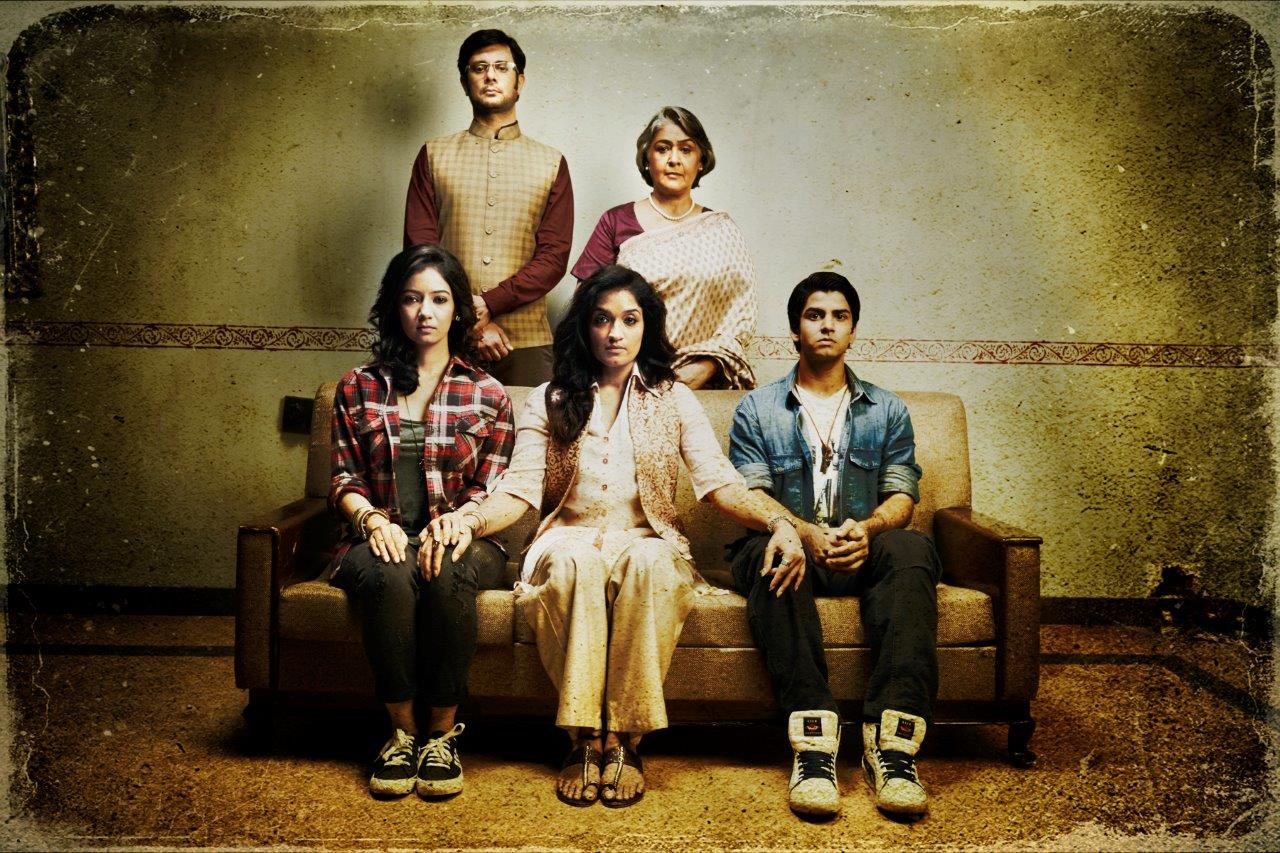 P.O.W.: Bandi Yuddh Ke casts.
P.O.W.: Bandi Yuddh Ke casts.
By all accounts, P.O.W. is Star Plus’s foray into making serious television for the urban masses — those who are drawn to the fantastical setting of Game of Thrones over the makkhi-metamorphosis of Sasural Simar Ka; the broken characters of True Detective instead of ACP Pradyuman’s leap-over-logic in CID; and Breaking Bad over Powder, a 2010 show about the narcotics trade in Mumbai that was cancelled after one season. “So, we wrote some stuff that was very radical and edgy. But we decided not to make it because it would have ruffled a lot of feathers, politically. Then Star suggested Hatufim, on which Homeland is based,” says Advani.
The Israeli show left him “stunned”. “Gideon Raff, who wrote the show, has written about the real prisoners of war — the families and the women, who are trapped between hope and despair. What I look for in any story is an emotional core. Look at Godfather. It’s not a story about the mafia, but about an American immigrant family. Ram Madhvani, one of the cleverest people I know, made a film (Neerja) not about an airplane hijacking, but about a mother and daughter. D-Day was not just about espionage, but about a father and his son,” says Advani.
“I’m making P.O.W. because I also wanted to tell the stories of two women, played by Sandhya and Amrita, who pick up the pieces of their lives after Kargil. The wives and families of these soldiers are the real patriots to me,” he says. Advani also asked Star to pay all the leads equally, “because each one of them is a hero in the show.”
But P.O.W. doesn’t solely rest on an emotional spectrum. Advani and his crew of four writers, Aseem Arora, Aniruddha Guha, Eisha Chopra and Gauravv K Chawla, are keen to engage with larger questions of identity and nationalism in the show. “It was a conscious decision to have two minorities essay the role of the heroes of the show. The popular perception is that Squadron Leader Khan, captured in Pakistan, will be the first one to turn. It allows us to question the audience that there is no way they did not think that woh toh Mussalman hai, woh toh zaroor gaddar niklega,” he says.
His team is willing to show torture at prison camps in as much graphic detail as Indian television will allow. Torture, he says, plays a significant role, as does post-traumatic stress disorder (PTSD). “What we show is what we’ve learned from real-life accounts of soldiers. There’s a scene where Sartaj and Imaan recount how every four years, they’d be brutally beaten up, more than usual. Later, they figured that it would coincide with every time India beat Pakistan in cricket. We’ve juxtaposed the torture scene with a crowd chanting ‘Sachin! Sachin!’ So when Sartaj returns, he asks, ‘We beat them every time?’ They remember they were beaten more. Then somebody says, ‘Blame the ICC, they started the T-20 World Cup’,” says Advani, with a grim chuckle. “I think it’s tough to show nuance in a show where one is talking about Pakistan as the enemy, but we should. At the end of the day, everybody has something that makes them human. There are good guys and bad guys, and I don’t think you can ever balance it. I will invariably take a position but I don’t want to become a jingoist,” he says.
P.O.W. is also quite a gamble for Advani, whose last successful directorial outing was D-Day, three years ago. 2015 was particularly brutal for the man who shot to fame with Kal Ho Na Ho and was returning to romance with Katti Batti and Hero — two films that tanked rather spectacularly at the box office. “I really believed in Katti Batti, I don’t know what went wrong. I thought the last 25 minutes were superb. But as somebody asked me, what about the first one hour, 45 minutes?” says Advani. The failure of the two films sent him to Bollywood’s numerologist, Sanjay Jummani, who prescribed an extra “K” in his first name.
 P.O.W.: Bandi Yuddh Ke casts.
P.O.W.: Bandi Yuddh Ke casts.
2016 has gotten off to a good start. His company, Emmay Entertainment, produced the year’s first big hit, Airlift, but Advani modestly credits director Raja Krishna Menon and Akshay Kumar for its success. He acknowledges that he could have done things differently with Hero. “The shift in the direction of the film was my fault. I could have turned around and said no. For me, Hero was a repayment of a debt I owed to Salman Khan, who stood by me after I left Dharma Productions and when the industry wrote me off,” he says.
Back in 2003, Advani says, when Kal Ho Na Ho was released, rumours abounded that his friend and colleague, Karan Johar, had shadow-directed the film. “It was odd, because lots of people have said that Kuch Kuch Hota Hai and Kabhi Khushi Kabhie Gham have been shadow-directed by me! Karan and I sit back and laugh at this now. Back then, we should have spoken to each other, we didn’t. Our egos got in the way,” he says. Advani and Johar were at Greenlawns High School, Breach Candy, together, where the former was sports captain and Johar’s senior. “Karan played one sport: tug-o-war,” says Advani and guffaws.
He talks about how Johar, Tarun Mansukhani and he got into Bollywood, without a clue about filmmaking. “The first day of shooting Kuch Kuch Hota Hai, we got so much equipment and we were enjoying ourselves. Till Shah Rukh Khan called us and said, ‘You don’t know anything about making movies, you better learn’.” And so we did. A lot of my shot breakdown is learned from Farah Khan. We were a great team,” says Advani. Dharma delivered three blockbusters between 1998 and 2003. But the partnership between the two friends ended after Kal Ho Na Ho.
“When the trailer came out, I was busy in post-production. People would ask me, why aren’t you doing interviews? If I’d done them, there possibly might have been less bitterness on my part. We didn’t speak to each other for six months. The film released in November 2003 and I left Dharma next April. Salaam-e-Ishq happened two and a half years later. It was a film made completely out of spite. People thought I couldn’t make one love story, so I made six! It was like an all-you-can eat buffet: I mixed Chinese food, French cuisine, Italian, Indian. At the end of it, you’re going to get a stomach upset,” says Advani wryly.
Between 2008 and 2012, a spate of Advani’s projects failed at the box office. “Before D-Day, I had lost everything. Chandni Chowk to China and Patiala House didn’t do well; in 2012, Delhi Safari, India’s most expensive animated film, ruined the producers. It won a National Award only a year later,” says Advani. Today, a sequel, Beijing Safari is being directed by Daniel St. Pierre, who directed Disney’s big hits such as The Lion King and Aladdin.
“Before D-Day, I was writing a Sex and the City-kind of chick-flick. But every studio I went to, they asked me, who’s the guy? You couldn’t sell a film based only on the women. But I think Vidya Balan changed that in a big way, with The Dirty Picture and Kahaani. Kangana Ranaut, Deepika Padukone, Priyanka Chopra have contributed as well. I feel Shoojit Sircar, Sujoy Ghosh, Vikas Bahl, producers like Viacom have changed that. It takes an industry. Films don’t fail, unless it’s a downright bad story, but budgets fail. One has to figure out the market as much as the merit of the film,” he says.
Photos
Apr 24: Latest News
- 01
- 02
- 03
- 04
- 05











